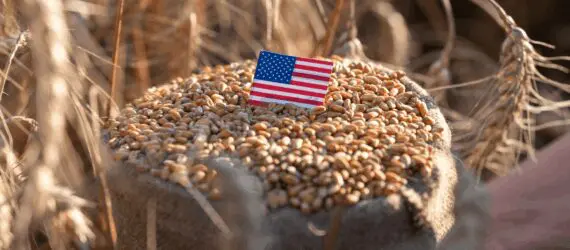By Jordan Teague
Climate change is an existential threat—it literally threatens humanity’s future. Among its most damaging impacts, it is a major cause of global hunger today.
Climate change disrupts food production. More frequent and more intense natural disasters destroy crops. Droughts, floods, or simply unpredictable weather patterns make it very hard for farmers to plan for a successful harvest.
Climate change damages food quality. Increasing levels of carbon dioxide, the result of rising greenhouse gas emissions, affect the soil and, in turn, reduce the nutrient content of crops.
Climate change is forcing people around the world to leave their homes and farms. This may be due directly to natural disaster, or it may be because, with agriculture no longer viable, they need to find other ways of earning a living.
Climate change disproportionately impacts people who are or have been marginalized. These communities are already more likely to live with hunger and malnutrition, and they have been denied equal access to resources that could help them better adapt to the impacts of climate change.
Bread for the World, as a collective Christian voice, acts on God’s call to participate in the work to end hunger. Our members strive to live out God’s will for humanity in Genesis 1:26-28, relating to care for creation: “… so they can be responsible for the fish in the sea, the birds in the air, the cattle, and yes, Earth itself, and every animal that moves on the face of Earth.”
Ending hunger requires climate action. Bread for the World has developed policy principles to guide our work in responding to the impacts of climate change. These include:
Food system reforms are crucial to putting the world on a sustainable path to ending hunger in ways that are healthy for people and for the planet. Not only are food production and nutrient quality harmed by climate change, as mentioned above, but the steps involved in getting food from farms to our forks contribute heavily to climate change through greenhouse gas emissions and water consumption.
Policy change in agriculture can contribute to solving both parts of the problem. One example of policy change is a shift to allocating more resources for climate-smart agriculture in both the United States and globally through U.S. development assistance. Climate-smart agriculture seeks to introduce crops that are hardier and better able to withstand climate shocks, develop more efficient farming techniques such as those that use less water, and so forth.
Centering race, gender, and class equity is essential to achieving climate justice and leaving no one behind. One of the most cruel realities of climate change is that the people who have contributed least to greenhouse gas emissions are among those suffering most from climate change. As one of the world’s top producers of greenhouse gases, the United States must focus not only on reducing its emissions, but also on increasing financial support to lower-income countries impacted by climate change and to communities here at home that have been disproportionately impacted.
Social protection systems enable people to better withstand climate shocks, whether these are sudden-onset disasters or damage that appears more gradually. Social protection can save the lives of malnourished children and prevent families from falling into hunger or extreme poverty. Safety net programs—such as SNAP, unemployment insurance, and Medicaid in the United States—are services and support that are there for people when they fall on hard times, including those induced by climate change’s effects. They may include support for people affected by efforts to slow climate change as well, helping them meet their own and their families’ basic needs and supporting them as they transition to work in other fields.
Crop insurance programs are another example of social protection. It is especially important to make these available to farmers of color, farmers from marginalized groups, and others who are disproportionately impacted by climate change. It is also important to ensure that farmers who grow fruits, vegetables, and other nutritious crops have access to insurance so that they can make more of these foods available.
To learn more about Bread for the World’s principles for climate action to end hunger, see the Climate Change Is a Hunger Issue fact sheet. We urge our nation’s leaders to adopt these policy principles. They will help the United States respond to climate change in effective ways that will also reduce hunger in our country and around the world.
Jordan Teague is interim director of policy analysis and coalition building at Bread for the World.



